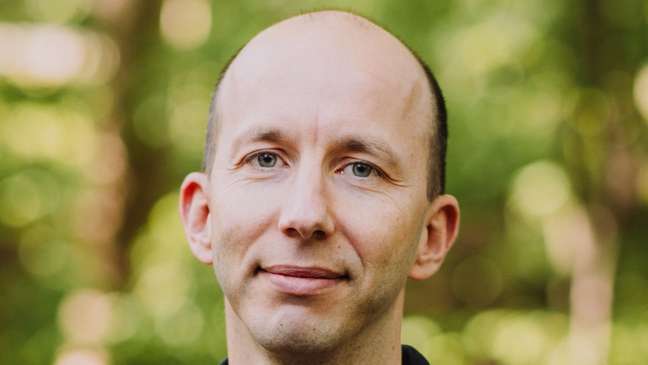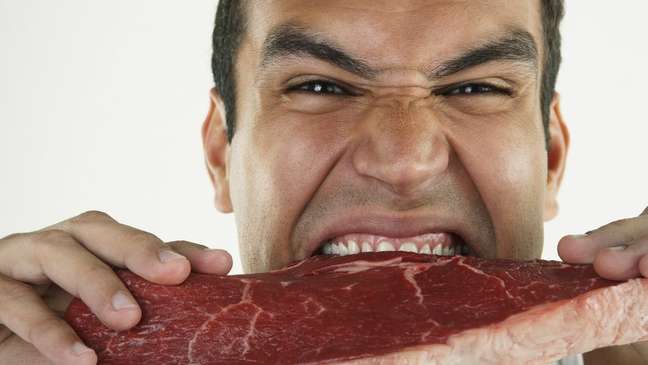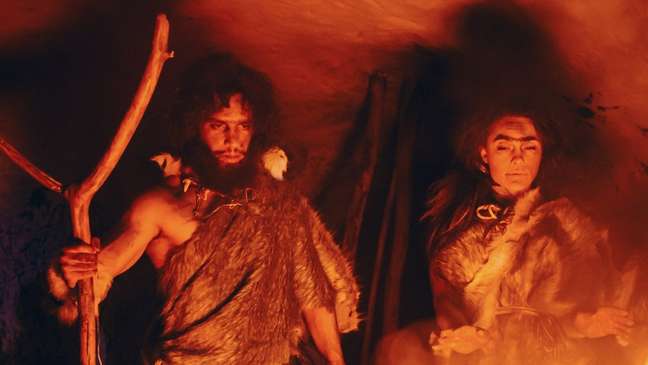“There are many myths about what humans ate in the past,” says researcher Herman Pontzer. “These are romantic beliefs, based on the assumption that there would be a natural diet.”

The “caveman” diet is popular with some people trying to lose weight. They believe that eating like Stone Age humans would make them healthier.
This type of diet was called the Paleolithic diet. And, to try and make a business of this trend, this diet has been credited with fantastic qualities: it is said to improve skin, boost immunity, solve digestive problems and, of course, aid in weight loss.
But how is it possible to eat paleolithically? The diet includes fruits, vegetables, lean meats, fish, eggs, nuts and seeds, which are foods humans are believed to have consumed when they were hunter-gatherers.
The Paleolithic diet excludes foods that became more common when small-scale agriculture began 10,000 years ago: grains, legumes and dairy products.
Everything seems very consistent, except for one detail: it is not true that humans had this prehistoric diet, according to Herman Pontzer, professor of evolutionary anthropology and global health at Duke University in the United States.
“There are a lot of myths about what humans ate in the past,” says Pontzer. “These are romantic beliefs, based on the assumption that there would be a natural diet.”
But after working directly with a hunter-gatherer community, the scientist was able to observe and measure what they actually eat.

The Hadza in Tanzania
Pontzer went to Tanzania to study and live with the Hadza, a group of hunter-gatherers. It is the people closest to life today that our ancestors would have led.
Rather than farming or herding animals, the Hadza live off what they find as they travel long distances.
Pontzer has spent the last decade studying the health and physiology of this group. The Hadza travel up to 10km a day, hunting wild animals, collecting honey, digging in the earth for tubers, picking fruit or hauling water and firewood.
After studying data obtained from this and other communities around the world, the researcher argues that, in fact, “there is no Paleolithic diet,” as hunter-gatherers had many diets, depending on climate, season and of many other conditions.

It is true that game, tubers and fruit contain fewer calories, salt or fat than the foods currently consumed by humans.
But it also turns out that most diets in the communities studied aren’t as high in meat and low in carbohydrates as some Paleolithic diet enthusiasts claim.
Contrary to popular belief, hunter-gatherers eat lots of carbohydrate-rich, sugary and starchy foods, tubers, honey and even grains, according to Pontzer.
There are documents from two hundred years ago with information collected by researchers. In them there is evidence of feeding this type of groups. And the descriptions demonstrate that there is no single ancestral human diet, according to the professor.
“Usually, hunter-gatherers’ diets include a balance of plants and animals, but it varies a lot,” says Pontzer.

Why are we fatter than our ancestors?
“That’s the million dollar question,” says the researcher.
There are several reasons. One is because we eat highly processed foods, according to Pontzer. We eliminate fiber and protein, adding sugars and oils, as well as artificial additives and flavors.
She adds that our bodies are hardwired to eat simple foods, but the food sold in supermarkets doesn’t come directly from trees or the earth, or from animal hunters.
So it’s not easy to eat healthier.
“I try to avoid highly processed foods, but I’m not perfect and don’t follow a strict diet,” she says. “Like many people, I sometimes fall prey to the temptation to eat the delicious processed food.”
– This text was published in https://www.bbc.com/portuguese/geral-63706168
🇧🇷The best content in your email for free. Choose your favorite Terra newsletter. Click here!
Source: Terra
Ben Stock is a lifestyle journalist and author at Gossipify. He writes about topics such as health, wellness, travel, food and home decor. He provides practical advice and inspiration to improve well-being, keeps readers up to date with latest lifestyle news and trends, known for his engaging writing style, in-depth analysis and unique perspectives.







